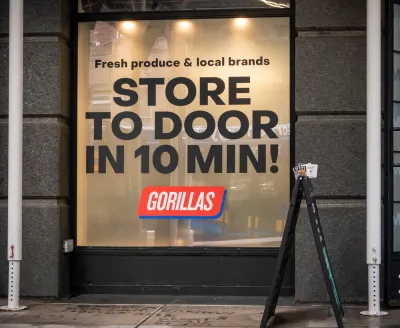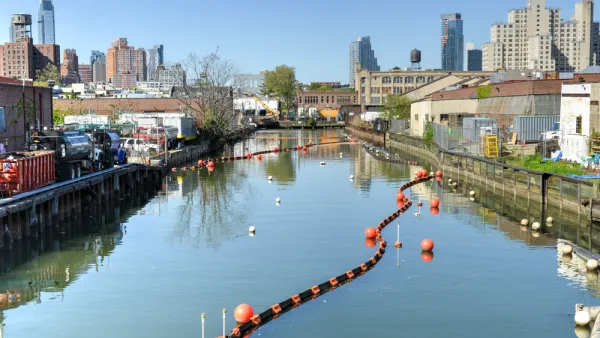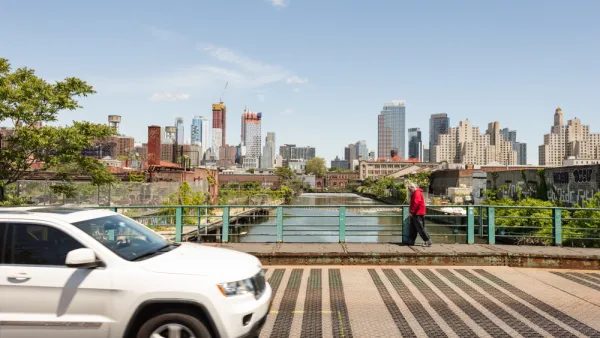After the city instituted a ban on cashless businesses, calling the model discriminatory against poor New Yorkers who rely on cash transactions, a study found that more than 80 percent of new fast-delivery stores don’t accept cash.

A new style of fast-delivery grocery stores is causing concern among New York City lawmakers, who in 2020 banned cashless businesses, saying they “discriminated against low-income consumers, who are less likely to have a credit card or bank account.” Yet a survey from Councilmember Gale Brewer’s office shows that 83 percent of fast-delivery operations do not accept cash payment, reports Arun Venugopal in Gothamist.
Although the Department of Consumer and Worker Protection says they “actively enforce” the policy, “Brewer said the city is failing to regulate this growing industry, one that is backed by venture capital and has been hyped in national media as the future of post-pandemic commerce. She complains the businesses, sometimes referred to as “dark stores,” flout other city laws, such as pricing-display rules, governing the commercial sector.”
According to Venugopal, “The city's ban against cashless businesses excludes purchases made online, by phone or by mail. But Brewer’s office notes that some locations do business both ways – taking remote orders and conducting in-person transactions – and need to follow the law barring cashless businesses as well as other city ordinances.”
Other councilmembers expressed concerns about data privacy and the threat these businesses pose to small, mom-and-pop stores in the city. “Councilmember Christopher Marte, whose father operated a bodega, is raising other concerns. He says the pandemic has caused numerous storefront vacancies in Chinatown and the Lower East Side, and worries that the small shops cannot stand up to the new fulfillment stores.”
FULL STORY: New wave of fast-delivery stores spark worries they threaten bodegas, isolate poor New Yorkers

Analysis: Cybertruck Fatality Rate Far Exceeds That of Ford Pinto
The Tesla Cybertruck was recalled seven times last year.

National Parks Layoffs Will Cause Communities to Lose Billions
Thousands of essential park workers were laid off this week, just before the busy spring break season.

Retro-silient?: America’s First “Eco-burb,” The Woodlands Turns 50
A master-planned community north of Houston offers lessons on green infrastructure and resilient design, but falls short of its founder’s lofty affordability and walkability goals.

Test News Post 1
This is a summary

Analysis: Cybertruck Fatality Rate Far Exceeds That of Ford Pinto
The Tesla Cybertruck was recalled seven times last year.

Test News Headline 46
Test for the image on the front page.
Urban Design for Planners 1: Software Tools
This six-course series explores essential urban design concepts using open source software and equips planners with the tools they need to participate fully in the urban design process.
Planning for Universal Design
Learn the tools for implementing Universal Design in planning regulations.
EMC Planning Group, Inc.
Planetizen
Planetizen
Mpact (formerly Rail~Volution)
Great Falls Development Authority, Inc.
HUDs Office of Policy Development and Research
NYU Wagner Graduate School of Public Service




























